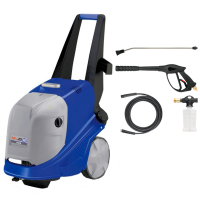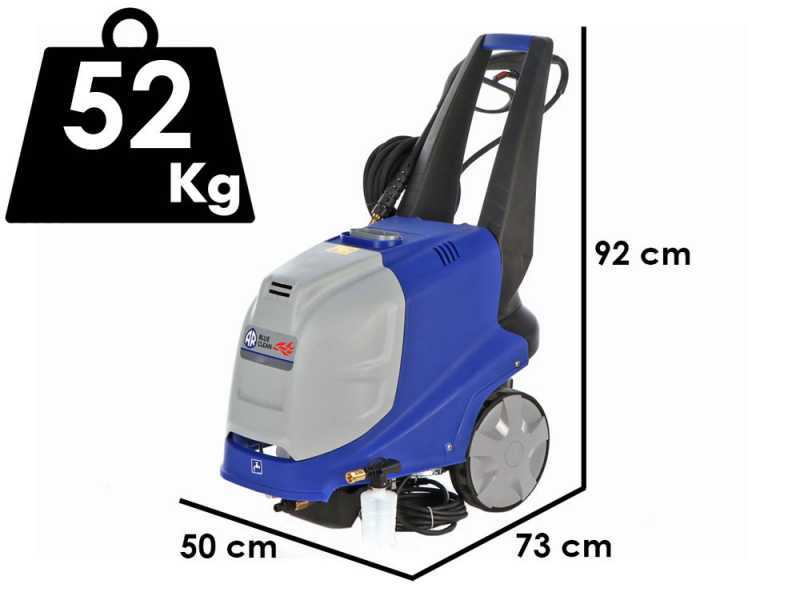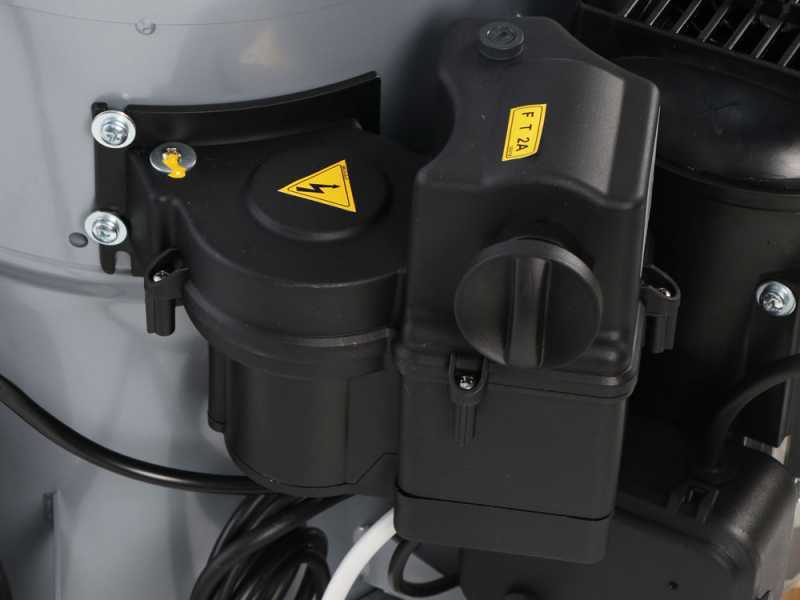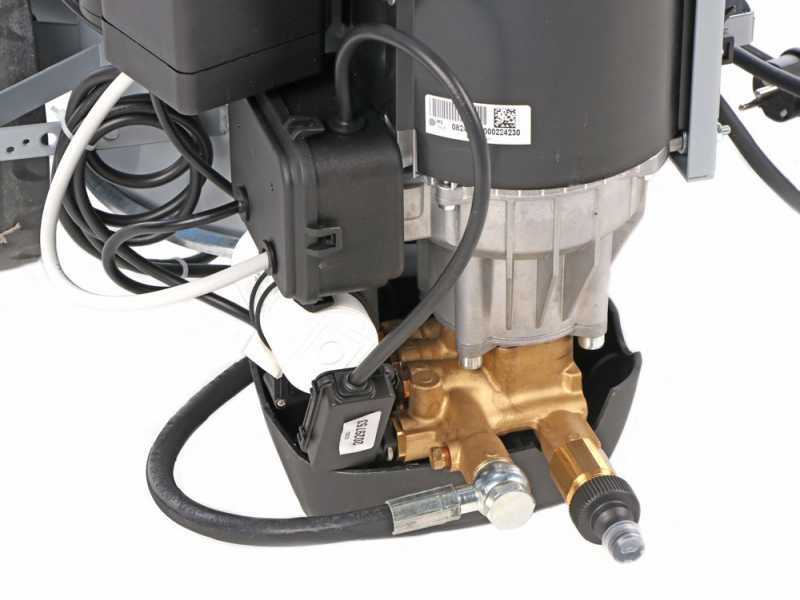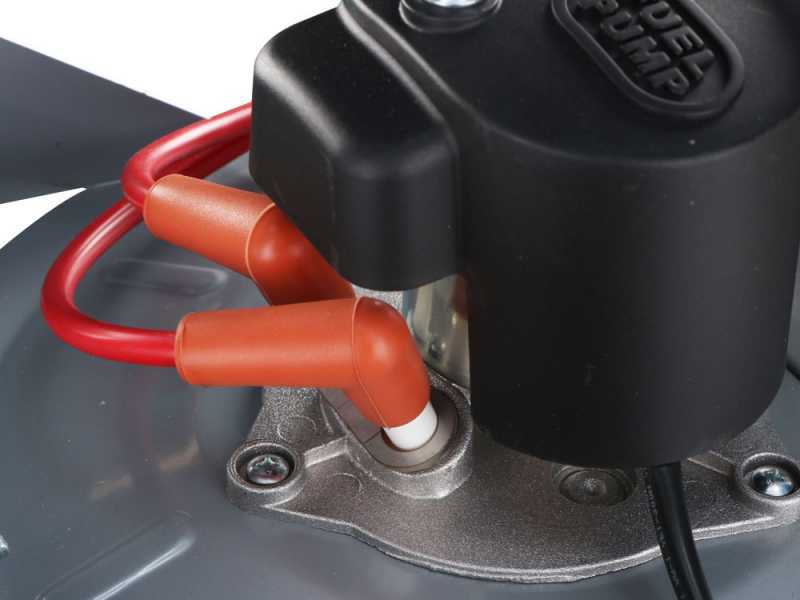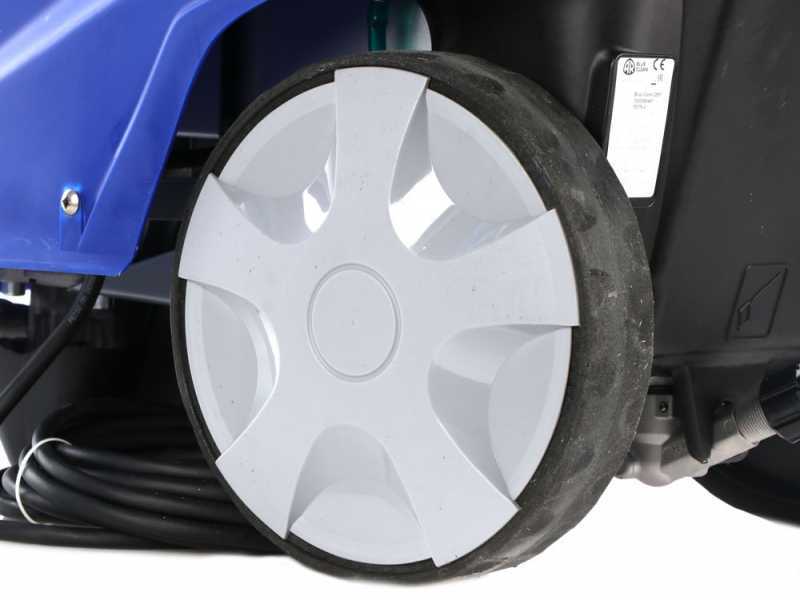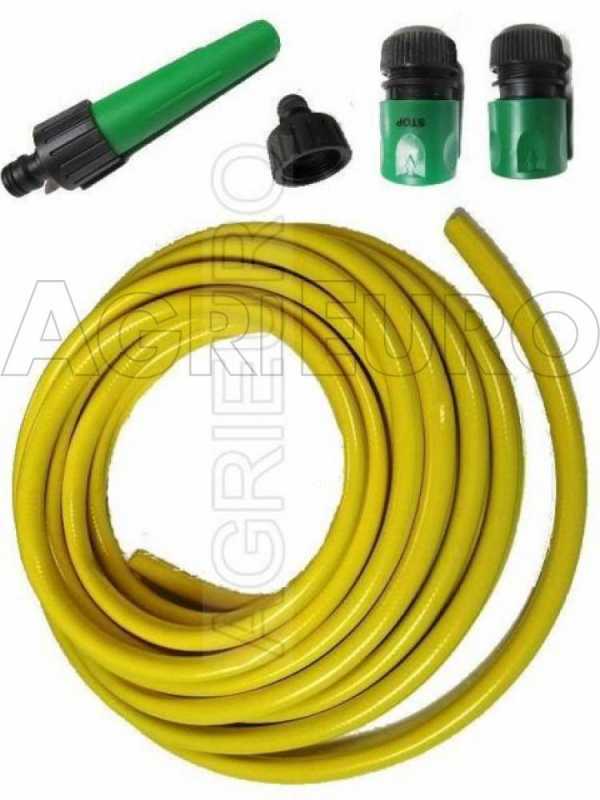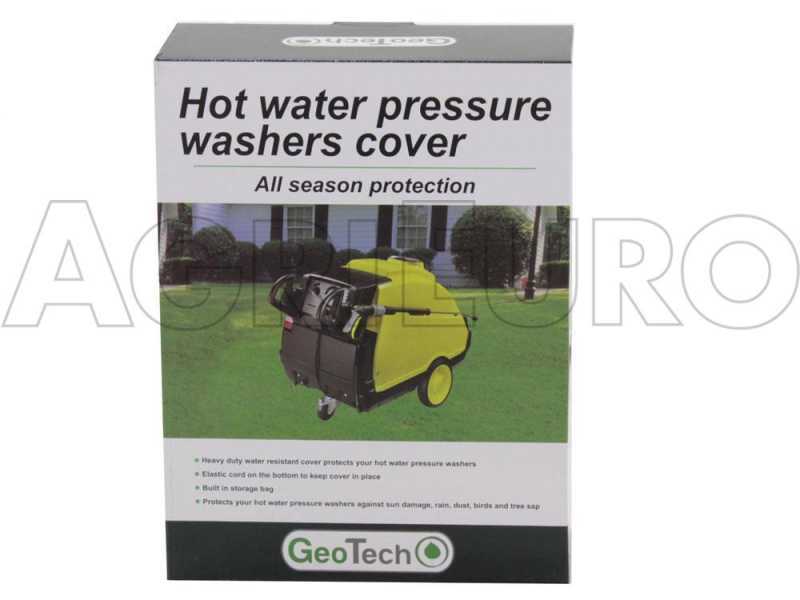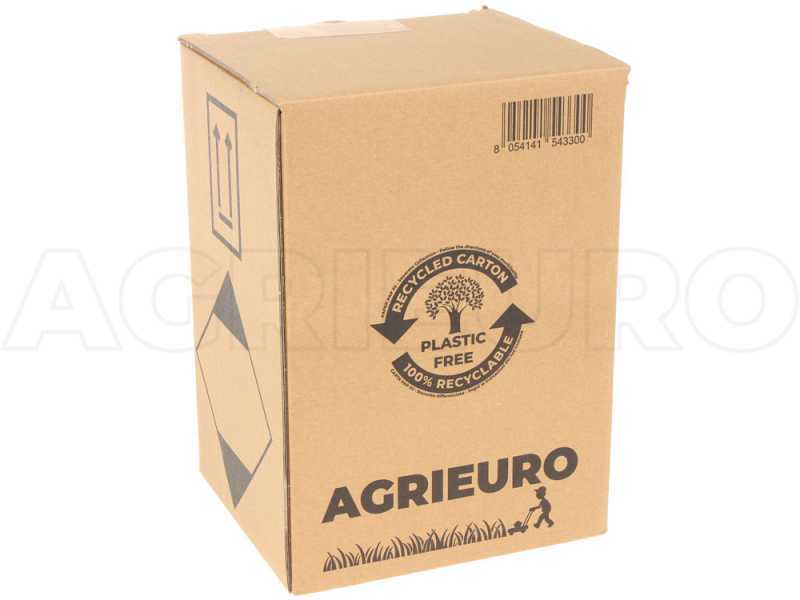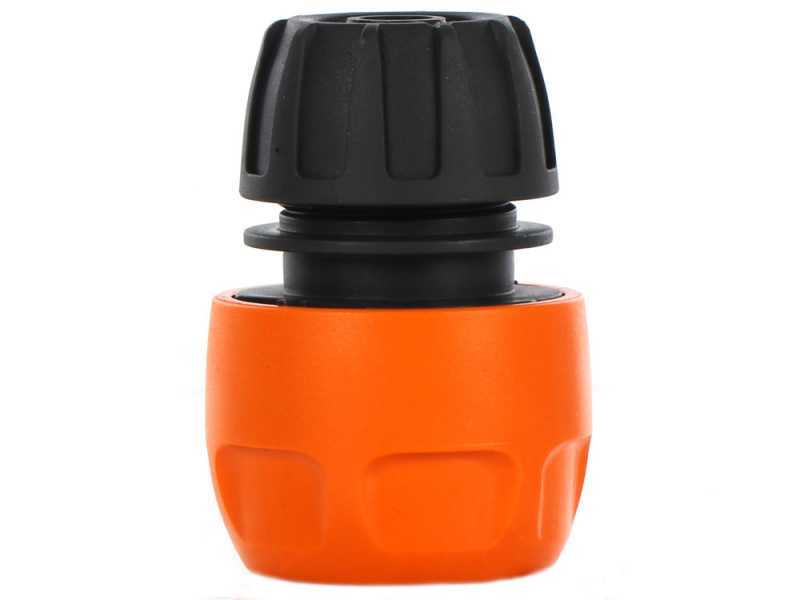The Annovi Reverberi 3590 hot water pressure washer is a semi-professional model, perfect for both demanding hobbyists and professionals, equipped with professional accessories to remove stubborn dirt such as oil and grease.
Internally, it is equipped with a brass head pump and three oil-hardened stainless steel axial pistons, controlled by an oscillating plate with an automatic by-pass valve that zeroes the pressure in the pump head.
The single-phase induction electric motor with thermal protection delivers up to 2.4 kW, with a maximum flow rate of 450 L/h and a maximum pressure of 150 bar.
To raise the water temperature to a maximum of 90°C, the pressure washer in question is equipped with a vertical boiler with a double coil and refractory bottom, fed by a 4-litre diesel tank. A safety pressure switch shut down the boiler in case of water shortage.
The Total Stop System allows the pressure washer to automatically stop when the gun lever is released and restart when work is resumed, preventing overheating, extending the service life of the machine and reducing water and energy consumption.
The model also includes an inspectable water inlet filter and a diesel intake filter. On one side of the pressure washer is a rotary switch for hot or cold operation, no temperature control option.
The classic design of the pressure washer ensures practicality and manoeuvrability, making it easy to move the device around.
Why choose a hot water pressure washer? It is mostly required the use of a hot water pressure washer whenever there is the necessity to remove oily or particularly stubborn dirt in the shortest time. The hot water washing performing levels turn out to be considerably higher than the ones reached by cold water (up to 50% higher in some cases), because the heat favours the dirt dissolution. Thus, the heat on a surface results in a quick-drying. Using a hot-water high-pressure cleaner therefore involves less washing time (for the same amount of dirt), better breakdown of non-water-soluble dirt, less drying time and less detergent; in short, lower fixed cleaning costs.




